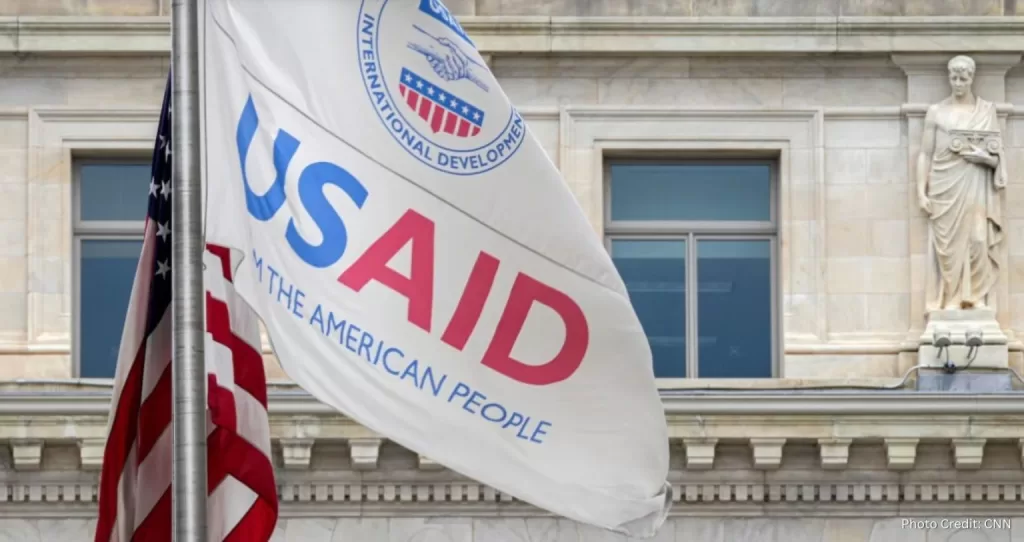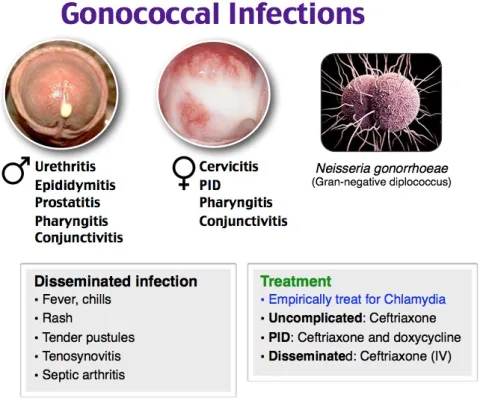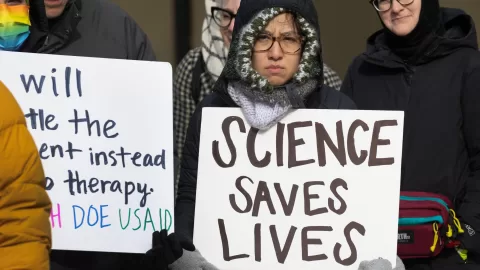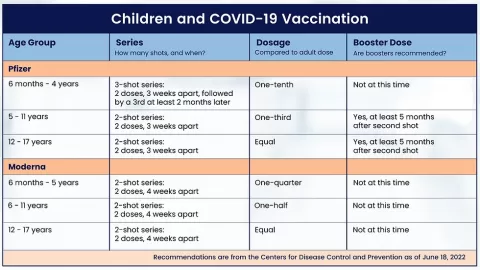The recent USAID funding freeze has sent shockwaves through global tuberculosis control efforts, jeopardizing progress made in combating this deadly disease. With the Trump administration’s abrupt halt on foreign aid funding, critical TB treatment programs across the globe are facing suspension, posing a serious risk to millions of patients reliant on life-saving medications and diagnostics. As the primary source of US foreign aid for tuberculosis control, USAID’s funding freeze affects approximately $406 million allocated for vital TB services in 2024, impacting the entire ecosystem of TB diagnosis, treatment, and prevention. The ripple effects extend beyond immediate health services, threatening the infrastructure necessary for antimicrobial stewardship and the long-term fight against drug-resistant TB strains. With experts warning of grave consequences from such interruptions in care, the outlook for global health, particularly in high-burden countries, appears increasingly precarious.
In a striking turn of events, the suspension of financing by the US Agency for International Development (USAID) has significantly disrupted interventions aimed at managing tuberculosis (TB) worldwide. This sudden cessation of funding not only halts important diagnostic and treatment initiatives but also raises concerns about the ongoing efforts in antimicrobial stewardship, crucial for preventing the rise of drug-resistant infections. Given that US foreign aid has historically played a pivotal role in funding TB treatment programs, the freeze undermines global health systems that rely heavily on these funds to combat a disease that still claims countless lives annually. As the challenges from the earlier COVID-19 pandemic continue to reverberate, the funding crisis further complicates the already fragile landscape of TB control efforts. Stakeholders fear that without immediate action, the resurgence of TB could spell disaster for communities already grappling with the remnants of both TB and the pandemic.
The Impact of USAID Funding Freeze on Tuberculosis Control
The recent USAID funding freeze has created considerable turmoil within the global tuberculosis control landscape. This moratorium, announced without prior warning, has halted crucial TB treatment, diagnosis, and prevention services across multiple nations. Funds that were once allocated to combat this deadly infectious disease are now suspended, affecting thousands of patients who rely on these services for their survival. With USAID contributing a significant portion of the annual global funding for TB programs, the freeze poses a direct threat to efforts aimed at securing sustainable advances in the fight against tuberculosis.
As a result of this funding disruption, many initiatives aimed at TB control have had to cease operations abruptly. Community-based organizations, crucial for connecting at-risk populations with necessary services, have been forced to halt their outreach programs. The termination of funding has led to a closure of clinical trials designed to innovate and improve TB treatment protocols, including those tackling drug-resistant strains. The immediate ramifications of this funding freeze can not only jeopardize the gains made in recent years but also escalate the incidence of TB in populations already battling high infection rates.
Significance of Sustained US Foreign Aid in Global Health
US foreign aid, particularly targeted towards health initiatives, plays a pivotal role in global efforts to combat infectious diseases like tuberculosis. USAID’s funding has historically supported comprehensive TB treatment programs that are essential for diagnosing, treating, and preventing further transmission of the disease. The critical nature of continued foreign assistance is underscored by the fact that TB remains one of the top infectious disease killers worldwide; sustaining funding is therefore crucial to maintaining progress towards global health goals and safeguarding public health.
Beyond TB, the suspension of foreign aid could have broader implications for global health infrastructure. Investment in programs supporting antimicrobial stewardship, vaccination efforts, and disease surveillance is inherently linked to the resources provided by the United States. The contributions from USAID and similar agencies help mitigate the spread of infectious diseases, emphasizing the importance of continuity in US foreign aid as a means of protecting both international and domestic health standards.
Consequences of Disrupted TB Treatment Programs
The halt in funding has sent shockwaves through TB treatment programs worldwide, leading to a cascade of negative outcomes for patients. Numerous reports indicate that TB patients are now without access to essential medical treatments, significantly increasing the risk of complications and mortality. As TB treatment often involves lengthy regimens, disruption leaves patients vulnerable not only to the worsening of their condition but also to the propagation of drug-resistant TB strains, which could prove even more challenging to treat.
Furthermore, the cessation of diagnosis and monitoring services brings about delays in the identification of new TB cases, exacerbating the public health risk. In areas with high TB prevalence, this situation is particularly dire, as untreated individuals can continue to spread the infection within their communities. Health experts emphasize that timely intervention is critical in managing TB outbreaks. Thus, the breakdown of treatment programs due to the funding freeze presents a serious threat to controlling this infectious disease globally.
Public Health Experts Warn Against the Freeze’s Long-term Effects
Public health professionals have raised extensive concerns regarding the long-term ramifications of the USAID funding freeze on tuberculosis control initiatives. Experts warn that even short-term disruptions in TB services can lead to dramatic increases in TB transmission rates. Effective tuberculosis control requires consistent monitoring, treatment, and preventive measures, and any pause in these activities can result in the disease evolving into more severe forms, posing threats not only to communities in high-burden countries but also to global health security.
Moreover, health professionals argue that the freeze could reverse decades of progress made in TB control and treatment advancements. Mike Frick from the Treatment Action Group and other experts express that pausing these critical services jeopardizes both patient outcomes and public health goals. A notable concern is the impact on multi-drug resistant TB strains, which are more challenging to treat, suggesting that the current freeze could lead to a resurgence of TB epidemics, not just abroad but also within the United States.
Community Responses to the USAID Funding Freeze
In response to the USAID funding freeze, several organizations and advocates within the tuberculosis control community are mobilizing efforts to address the crisis. The Stop TB Partnership, among others, has begun advocating for renewed funding and has taken steps to raise awareness about the consequences of the funding halt. Through campaigns and partnerships, these organizations aim to pressure decision-makers to reinstate funding, emphasizing how crucial these resources are for longstanding TB programs that save lives.
Furthermore, community voices are amplifying the call for sustained support in TB control efforts. Many members of affected communities are sharing their stories to illustrate the real impact the funding freeze has on their lives and health. Activists argue that with TB affecting over 10 million people yearly, maintaining continuous support from agencies such as USAID is vital—not just for preventing the disease but also for addressing the socioeconomic factors that make marginalized communities particularly vulnerable to infections.
Legal Challenges to Restore Funding for TB Programs
As legal challenges to the USAID funding freeze mount, various stakeholders are exploring avenues to counteract this executive order. Contractors and advocates have filed lawsuits, arguing that the funding suspension violates federal law and undermines essential health initiatives. They assert that USAID programs are grounded in principles of humanitarian aid, which should not be subject to abrupt political shifts without legislative oversight.
These legal efforts reflect a broader apprehension about the administration’s dismantling of structures that have historically safeguarded public health initiatives. As the lawsuits proceed, health organizations hope to utilize the judicial system to ensure that the funding necessary for TB control is restored, reinvigorating efforts to mitigate the public health risks posed by tuberculosis and maintaining the United States’ commitment to global health.
The Effect of COVID-19 on TB Services
The USAID funding freeze comes at a time when global tuberculosis services are just beginning to recover from the turmoil caused by the COVID-19 pandemic. Health systems worldwide experienced severe operational disruptions during the pandemic, which led to significant drops in TB diagnosis and treatment rates. Many countries transitioned resources to address the COVID crisis, inadvertently hampering efforts tailored towards TB management.
As communities grappled with dual health threats, the newer challenges ushered in by the pandemic revealed the fragile state of public health infrastructure. Experts advocate for increased attention to TB services in the wake of the funding freeze, highlighting the urgent need for a multifaceted approach that addresses both TB and the residual effects of COVID-19. Sustaining TB programs under these intertwined health crises is essential to prevent further deterioration of global health.
Future Directions for Tuberculosis Control Initiatives
Given the current challenges facing tuberculosis control due to the funding freeze, experts emphasize the need for strategic reforms and innovative solutions in TB management. The community must explore alternative funding mechanisms that can fill the gaps created by the USAID halt, including increased collaboration with private sector entities and international health organizations.
Moreover, there’s a strong call for integrating TB initiatives with other health programs, particularly those focusing on infectious diseases, to streamline efforts and reduce silos. By creating a more holistic and interconnected approach to global health, it may be possible to leverage existing resources more effectively, ensuring that the fight against tuberculosis remains robust even amidst funding uncertainties.
Conclusions: The Essential Role of Continuous Support for TB Initiatives
As discussions continue surrounding the implications of the USAID funding freeze, the need for ongoing and consistent investment in tuberculosis initiatives remains clear. The fragility of progress made in TB control highlights how interruptions in funding can lead to spiraling consequences for public health at large. Ensuring that lifesaving services remain available to patients should remain a top priority.
Advocacy for renewed and sustained support from US foreign aid agencies will be integral to safeguarding the health of millions worldwide. As public health experts and communities alike continue to rally against the freeze, the overarching message is one of resilience in the face of adversity, emphasizing that robust international cooperation is crucial to overcoming the challenges posed by tuberculosis and other infectious diseases.
Frequently Asked Questions
What are the impacts of the USAID funding freeze on tuberculosis control efforts?
The USAID funding freeze has significantly disrupted tuberculosis (TB) control efforts globally, forcing many TB diagnosis and treatment services to cease operations, which directly affects patient access to medications and medical care. As USAID is a major source of funding for TB programs, the halt in funding impacts all aspects of TB care, including community outreach and clinical trials, which raises concerns about the potential for increased drug resistance and fatalities due to untreated TB.
How does the USAID funding freeze affect global health initiatives?
The USAID funding freeze poses a serious threat to global health initiatives, particularly in TB control, by halting vital programs that support diagnosis, treatment, and research. With USAID providing about a third of international donor funding for TB, this disruption jeopardizes ongoing efforts to combat TB and other infectious diseases, leading to increased risks of outbreaks and the development of drug-resistant strains.
What role does USAID play in tuberculosis treatment programs?
USAID is the leading agency for U.S. foreign aid dedicated to global tuberculosis treatment programs, contributing significantly to TB control worldwide. The agency funds a network of NGOs that provide crucial TB services, facilitating both treatment and research efforts that are essential in the fight against TB. The recent funding freeze puts these critical programs at risk, impacting their ability to operate effectively.
How has the USAID funding freeze impacted antimicrobial stewardship efforts?
The USAID funding freeze disrupts antimicrobial stewardship efforts by halting programs that support appropriate TB treatments and responsible prescription practices. With the cessation of funding, many ongoing projects aimed at controlling antimicrobial resistance, especially in relation to TB, face uncertainty and potential failure, increasing the risk of drug-resistant infections.
What are potential long-term consequences of the USAID funding freeze on TB control?
Long-term consequences of the USAID funding freeze could include a resurgence of tuberculosis cases, increased incidence of multidrug-resistant TB, and setbacks in research and clinical trials essential for developing effective treatments. The halt in funding for TB programs can lead to lives lost and amplify health disparities in high-burden TB countries.
Are there legal challenges to the USAID funding freeze affecting tuberculosis programs?
Yes, there are ongoing legal challenges against the USAID funding freeze. Contractors and stakeholders involved in TB programs have filed lawsuits stating that the freeze is unconstitutional and violates federal law, arguing that it jeopardizes essential health services and undermines U.S. commitments to global health.
How does the USAID funding freeze affect access to TB medications in high-burden countries?
The funding freeze has led to the immediate disruption of access to TB medications in high-burden countries. Many programs reliant on USAID funding have received ‘stop-work’ orders, leaving patients without necessary treatments and exacerbating the public health crisis associated with tuberculosis.
What is the significance of USAID funding for global TB research?
USAID funding is vital for global TB research, as it represents one of the largest sources of financial support for TB-related research initiatives. The funding freeze threatens ongoing studies that could lead to advancements in TB treatment, diagnostics, and prevention strategies, which are critical for achieving TB elimination goals.
What are health experts saying about the impacts of the USAID funding freeze?
Health experts have expressed grave concerns about the effects of the USAID funding freeze, warning that even brief interruptions in TB services can lead to serious health consequences, including increased transmission, the development of drug resistance, and potentially fatal outcomes for untreated patients.
How can the USAID funding freeze affect U.S. health security?
The USAID funding freeze could compromise U.S. health security by reducing funding for global health initiatives that help contain infectious diseases, including TB, before they reach American shores. Preventing outbreaks abroad is crucial for protecting U.S. citizens, and the funding freeze undermines these preventative efforts.
| Key Point | Details |
|---|---|
| USAID Funding Freeze | The Trump administration implemented a 90-day freeze on USAID funding, disrupting global TB control efforts. |
| Impact on TB Programs | Closure of TB diagnosis and treatment services due to ‘stop-work’ orders, affecting millions of patients. |
| Global TB Statistics | TB infects over 10 million people each year, leading to 1.25 million deaths. |
| Role of USAID | USAID accounts for about a third of all international donor funding for TB control. |
| Research and Trials | Clinical trials for drug-resistant TB treatments have been halted, risking future effectiveness. |
| Legal Actions | Lawsuits have been filed against the administration regarding the funding freeze and agency dismantling. |
| Expert Opinions | Healthcare professionals warn of severe repercussions for TB patients due to service interruptions. |
Summary
The USAID funding freeze has critically disrupted global tuberculosis control efforts, jeopardizing the health and lives of millions. With the abrupt halt enforced by the Trump administration, essential TB diagnosis and treatment programs have been forced to shut down, leaving patients without necessary medications and care. As we assess the severity of this situation, it is evident that restoring USAID funding is imperative to safeguard public health both abroad and in the United States.
The content provided on this blog (e.g., symptom descriptions, health tips, or general advice) is for informational purposes only and is not a substitute for professional medical advice, diagnosis, or treatment. Always seek the guidance of your physician or other qualified healthcare provider with any questions you may have regarding a medical condition. Never disregard professional medical advice or delay seeking it because of something you have read on this website. If you believe you may have a medical emergency, call your doctor or emergency services immediately. Reliance on any information provided by this blog is solely at your own risk.








